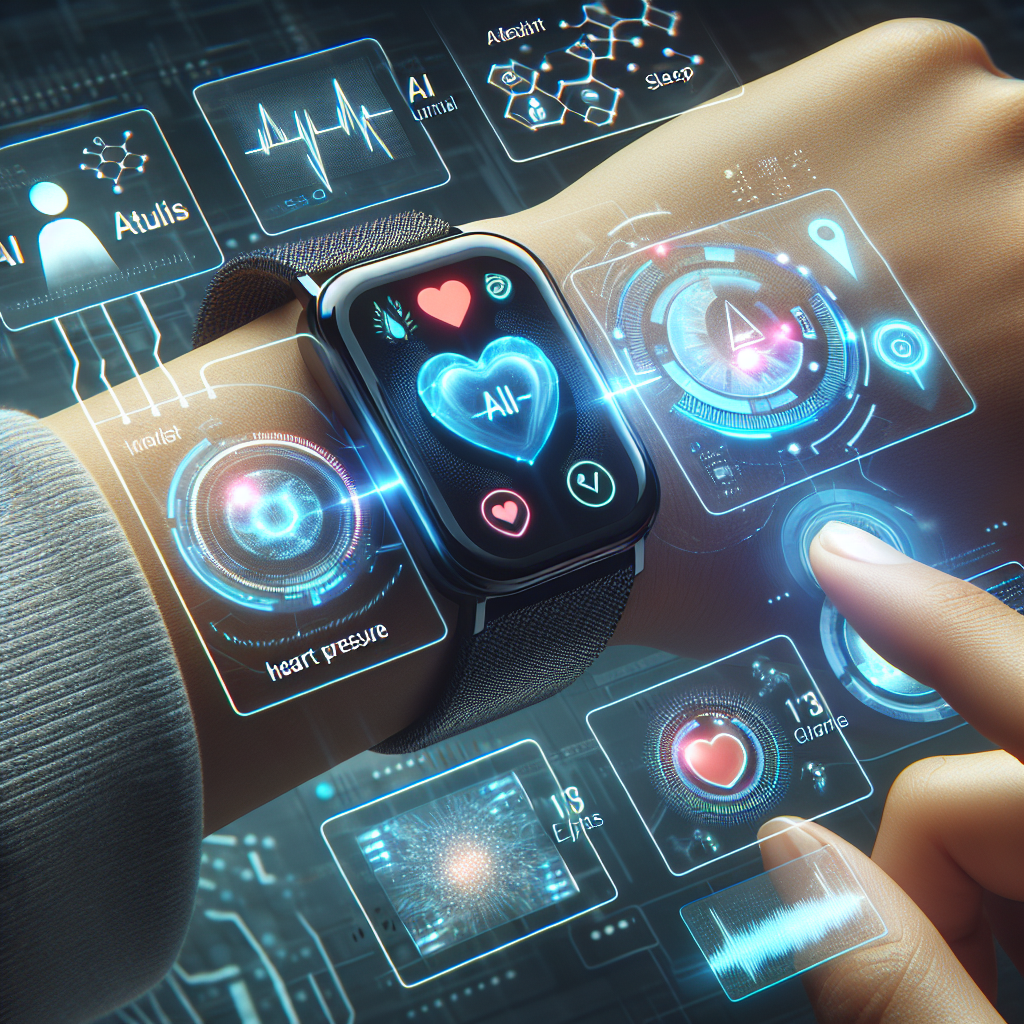In the rapidly changing world of technology, wearable devices have evolved from basic fitness trackers to advanced tools that can revolutionize personal health management. With the addition of artificial intelligence (AI), these wearables not only track our physical activities but also offer personalized insights, predictive analytics, and real-time health advice. This article explores the transformative power of AI in wearables and its role in shaping the future of personal health.
The Emergence of AI in Wearables
The wearable market has gained immense popularity, spurred by consumer interest in convenience and health awareness. The incorporation of AI into these devices expands their functions beyond mere data collection to intelligent analysis. This progress allows for a richer understanding of individual health trends.
Intelligent Health Monitoring
AI wearables are capable of tracking various health metrics, such as heart rate, sleep quality, and stress levels. They employ machine learning algorithms to analyze this data, uncovering patterns and trends that users might overlook. For example, if your wearable detects an irregular heartbeat, it can prompt you to seek medical advice, potentially averting serious health complications.
Customized Health Insights
One of the most fascinating features of AI wearables is their capacity to provide customized health insights. Unlike traditional fitness trackers that offer generic advice, AI-powered devices can evaluate user data to produce tailored recommendations. For instance, they may suggest specific workouts based on your activity history or recommend dietary changes aligned with your metabolism and health objectives.
Predictive Health Insights
AI not only reacts to data but also forecasts future health outcomes. By scrutinizing historical data and identifying trends, these wearables can predict potential health risks. This predictive functionality is especially vital for managing chronic conditions, empowering users to take proactive measures to reduce risks before they worsen.
Promoting Mental Wellness
The mental health movement is another domain where AI wearables are making a significant impact. Devices with mood monitoring and stress management capabilities can help users gain insights into their mental health. For instance, wearables can track physiological indicators of stress and recommend tailored breathing exercises or mindfulness techniques. This feature encourages users to be more aware of their mental well-being, fostering a holistic approach to health.
Harmonious Integration with Healthcare Systems
The future of health wearables is characterized by their seamless incorporation into healthcare frameworks. Many AI wearables can interface directly with healthcare providers, facilitating instant data sharing and communication. This integration allows for continuous monitoring of chronic conditions, enabling timely interventions and reducing hospital visits. Physicians can access real-time data from patients, leading to more informed decisions and personalized treatment strategies.
Addressing Challenges
Despite their promise, AI wearables face several hurdles. Privacy and data security are critical concerns, as users must trust that their sensitive health information is safeguarded. Additionally, the accuracy of algorithms and the requirement for regulatory approval create further obstacles. As technology progresses, addressing these challenges will be essential for wider acceptance.
The Path Forward
The prospects for AI wearables in personal health are bright. As technology continues to evolve, we can anticipate more advanced features, such as improved sensors capable of tracking additional health metrics, increasingly intuitive AI, and devices that adapt in real-time to the user’s lifestyle.
Furthermore, the push for health equity may lead to the creation of accessible AI wearables that serve diverse populations, ensuring everyone can benefit from personalized health insights, irrespective of their socio-economic background.
Final Thoughts
AI wearables are more than just fashionable devices; they signify a fundamental shift in our approach to personal health. By merging real-time health monitoring with predictive analytics and customized insights, these devices empower users to take control of their well-being. As we embrace this technological advancement, we are moving closer to a future where health management is proactive, personalized, and integrated, ultimately improving our quality of life. The future truly lies on our wrists.

